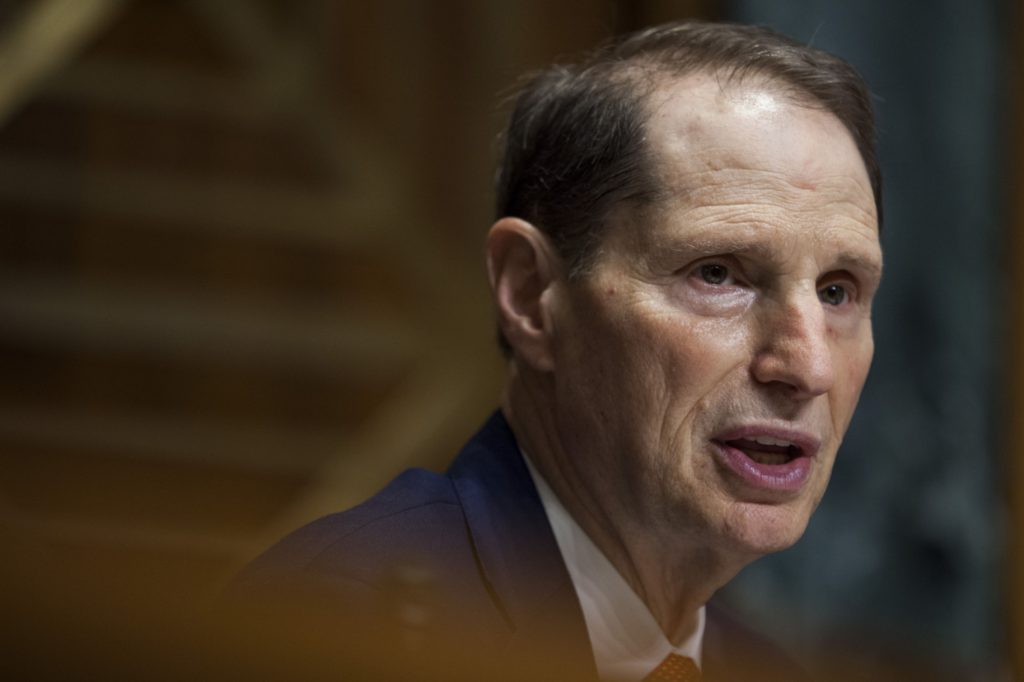Senators go beyond Biden plan to end private-equity tax break

Two senior Senate Democrats are proposing to end a prized tax break for the private-equity industry in a new bill that would go further than President Joe Biden’s plan and potentially raise quadruple the revenue.
Senate Finance Committee Chairman Ron Wyden and Rhode Island’s Sheldon Whitehouse, a member of the panel, are introducing legislation Thursday to repeal the break for carried interest, which allows private equity fund managers to pay lower tax rates on their earnings than they would for regular income. The bill would also prohibit them from deferring tax payments on those earnings, another benefit embedded into the current law.
Requiring fund managers to pay taxes when they receive the profits would raise $63 billion over the next decade, according to an estimate from the Joint Committee on Taxation.

Zach Gibson/Bloomberg
Biden, in his American Families Plan, called for an end to carried interest, but stopped short of eliminating investors’ ability to delay paying taxes on the income. Halting the tax break but allowing deferral would raise only about $14 billion over that time period, according to a previous estimate from the congressional tax scorekeeper.
In addition to salaries, private equity managers rely especially on a share of the appreciation in the assets they oversee — known as carried interest. Those profits — sometimes in the millions of dollars — have been taxed as capital gains, at a rate much lower than the top marginal income tax rate applied to wages.
Biden has proposed to raise the top income tax rate to 39.6%, up from 37% under current law. Carried interest payments are currently taxed at 20%, the preferential capital gains rate.
The proposal is a contender to be included in a Democrats-only spending bill later this year that would enact much of Biden’s agenda and would be funded by tax increases on corporations and the wealthy.
The potential revenue totals are just a small portion of the up to $3.5 trillion package Democrats are debating, but the issue represents a symbolic political win for lawmakers who say they want to raise taxes on the wealthiest Americans as a way to make the Tax Code more equitable and lessen income disparities.
“One of the most indefensible loopholes in the tax code allows wealthy private equity managers to be taxed at lower rates than nurses treating COVID patients and avoid paying any tax year after year after year,” Wyden said in a statement. “Private equity managers will no longer be able to defer paying tax for years, if not decades.”
Carried interest has been under attack from both Republicans and Democrats for years. In 2017, the private equity industry successfully fought off major changes in the Republican tax overhaul that year, when some Republicans considered cutting the tax break as a way to pay for reductions elsewhere. In the end, the GOP kept the carried-interest tax break intact but required that investors hold their investments for longer to get the benefit.
The Senate will begin debating a budget resolution as soon as next week that will serve as the framework to advance the Democrats’ economic agenda. The bill requires unanimous support from Democrats in Congress and will likely consume the legislative agenda in the fall.


